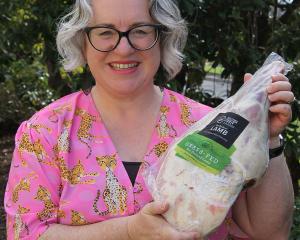
Hastings-born, Balclutha-bred Courtney Ralston (19) was born with rare genetic disorder Sturge-Weber Syndrome, diagnosed when she was 7 after she suffered a dramatic seizure while sleeping.
But Courtney has never let the condition — which affects about 20 people in New Zealand — hold her back from leading as normal as life as possible, enjoying rock-climbing, horse-riding and academic life at South Otago High School, before getting a job administering the Balclutha Toy Library.
Thanks to a carefully-tailored drug regimen, and long experience living with her condition, the buoyant teenager says she has been seizure-free for nearly three years now.
Despite that, she says being labelled "epileptic" seems to be thwarting her ambitions to take a step forward in leading the independent life she desires.
After heading north to Dunedin in early 2019, she moved into a George St boarding house and started looking for work.
.
But since that time, Courtney has been repeatedly rebuffed by employers, largely, she believes, due to her honesty in disclosing her long-standing condition.
"Obviously, not every employer is going to hire you, but there have been so many times when everything seemed to be going well, and I’d ticked all the boxes. Then they see ‘epilepsy’ in the medical disclosure and the smiles are suddenly gone.
"The epilepsy is controlled and I manage myself carefully, so I’m not a danger to myself or anyone else. I’m a good, reliable worker, like any other person. I just want a chance to prove my worth and make a go of it up here."
Courtney said her skills lay in technology and administration.
"I’m not looking for a high-risk job, using knives or something. I kept the books and managed the databases at the toy library, so something like that would be ideal.
"But, to be honest, I’m at the stage I’d happily take anything, if someone is willing to give me a chance."
She estimated she had researched and applied for "dozens" of jobs during the past two years, even offering herself for voluntary work to keep busy and get out in the workplace.
A recent experience with an unnamed Dunedin dentist was typical, she said.
"Everything seemed good until they spotted and asked about my Medic Alert bracelet, which I wear as a precaution. Then, ‘Well, we’ve got a few more people to see, so we’ll be in touch."’
She said although she was an optimistic person, the continual rejection was hard to take.
"I really want to be out there and among people doing something purposeful.
"My dream ... I’d love to start saving for my own place one day."











